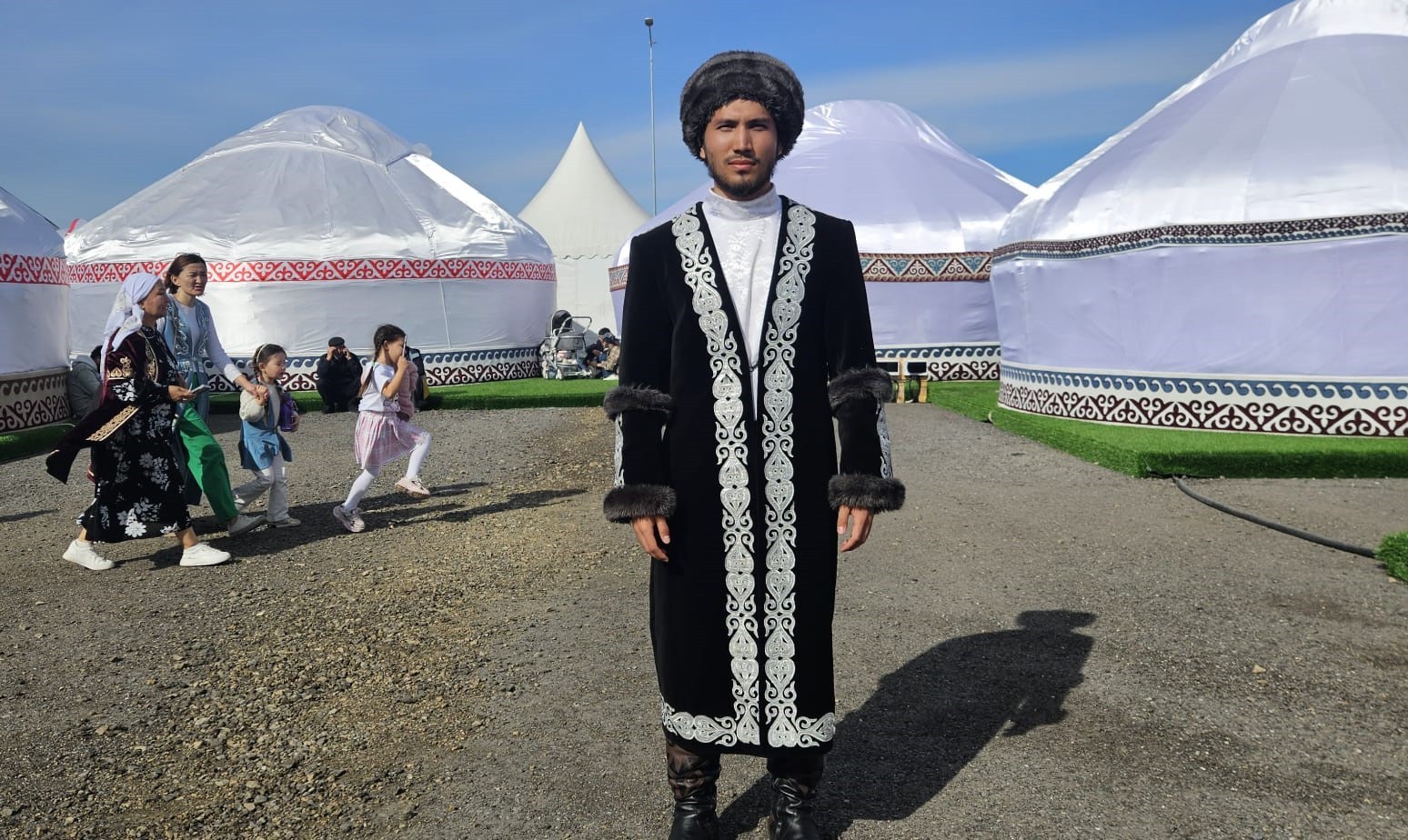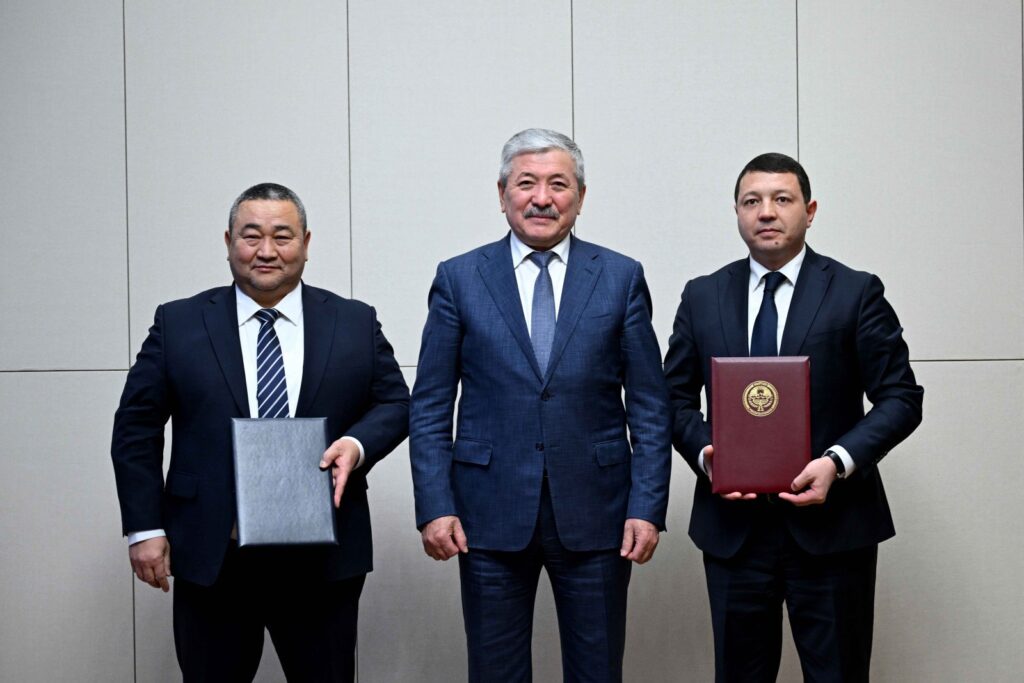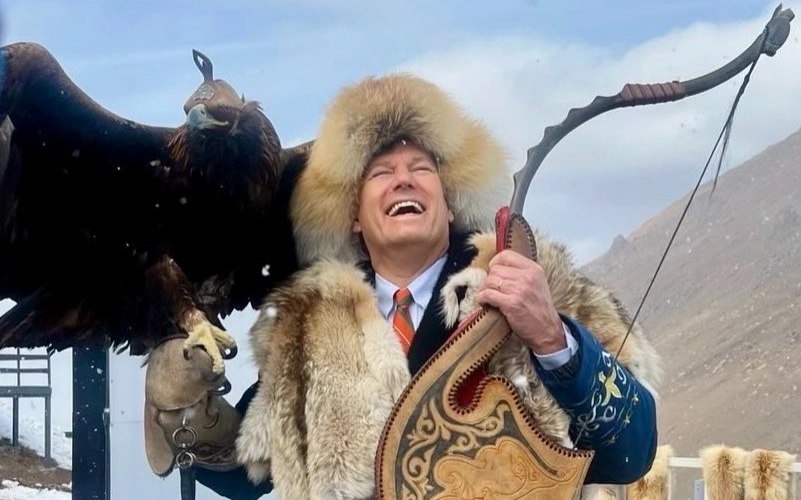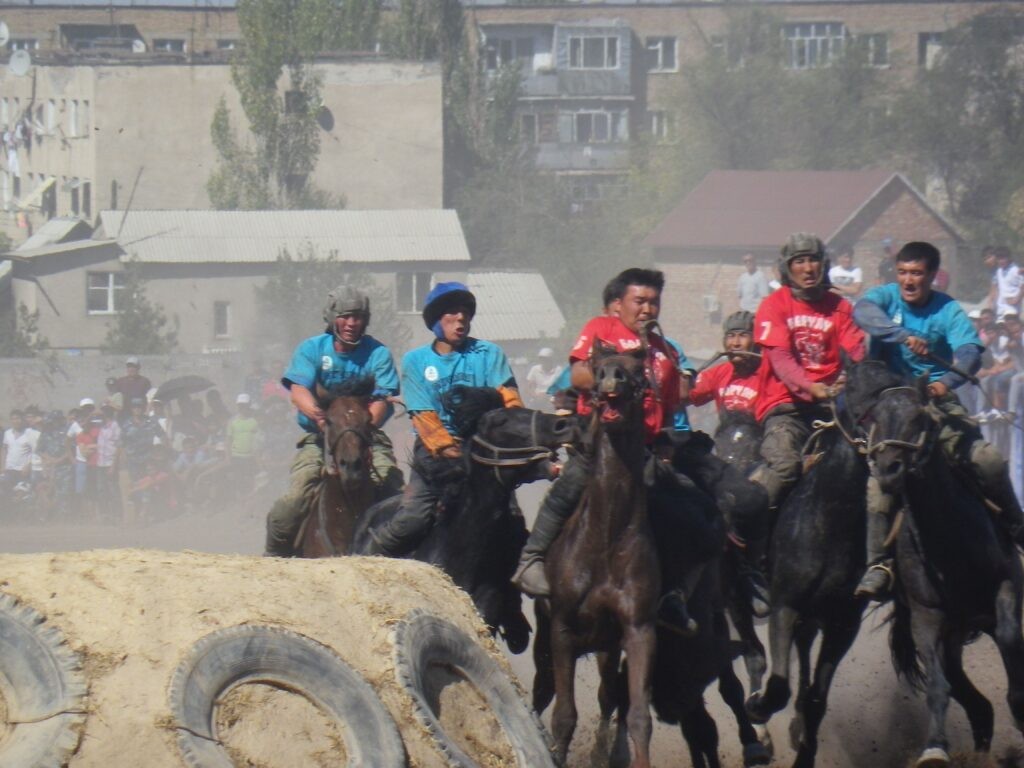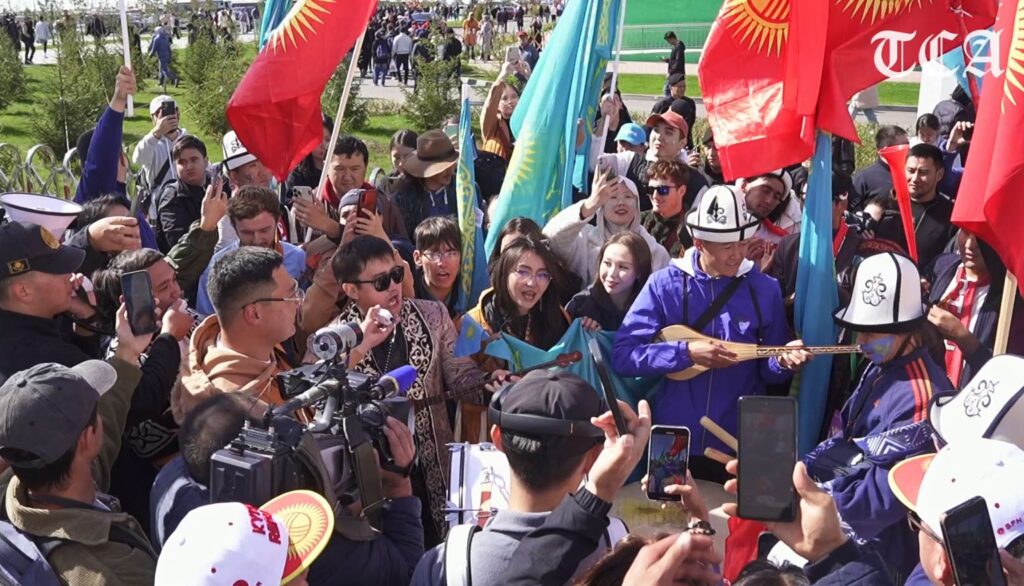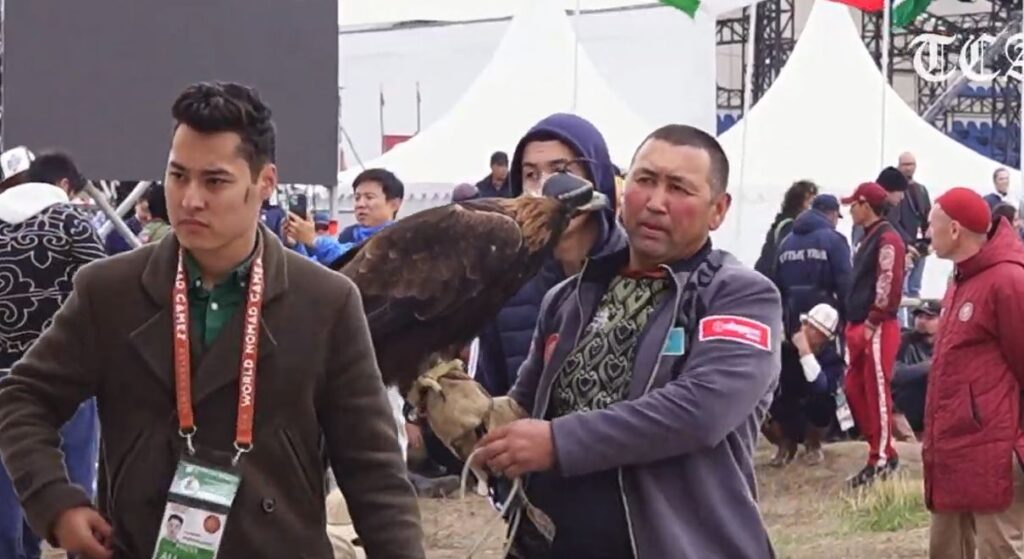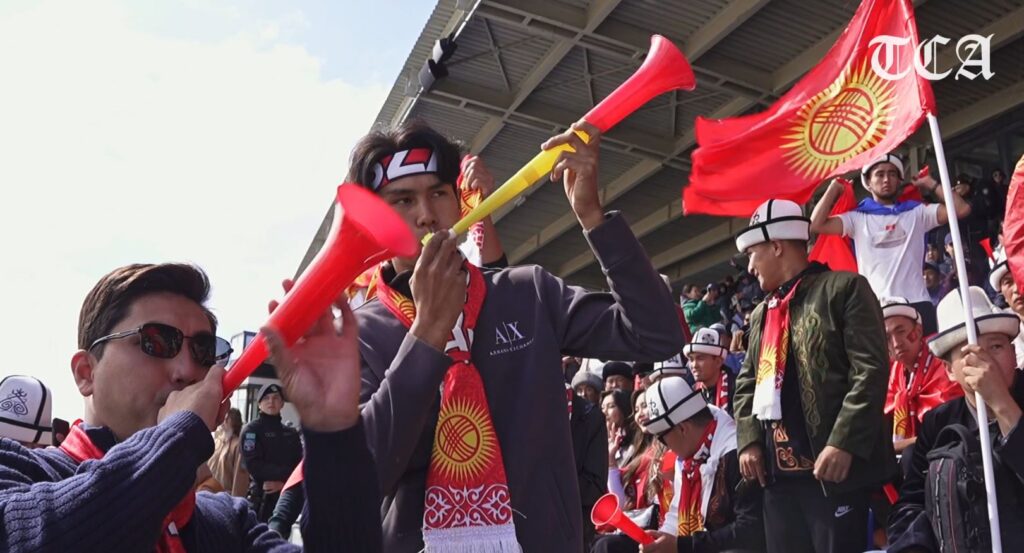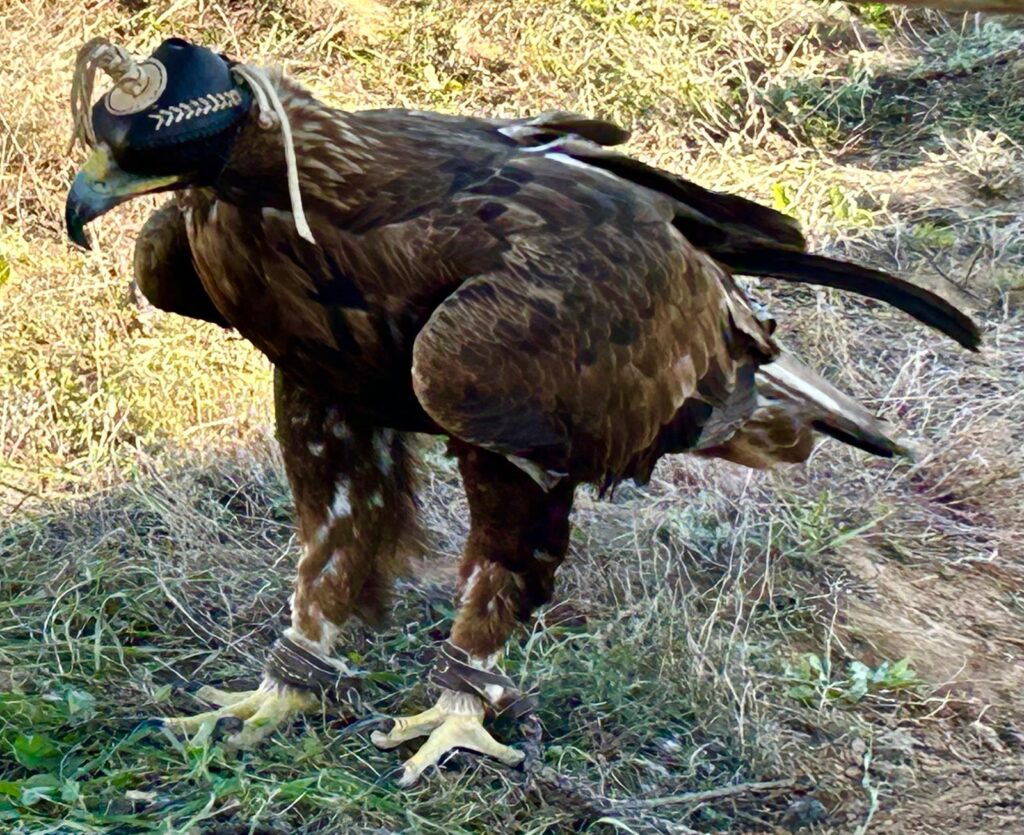In and amongst the many yurts at the 2024 World Nomad Games Ethnoaul (Ethnic Village), the inhabitants of a specific yurt — not only delight and surprise passersby with boisterous renditions of Kazakh music, dance, and comical stage combat — but they energetically beckon people inside to experience the traditional familial rituals of a nomadic Kazakh marriage proposal. Guests are seated on the floor while segments of the ritual are played out and translated into English by the host, Ernur. The experience is immersive to the point where some of the observers from far-off regions were overheard congratulating the bride-to-be on her upcoming nuptials.
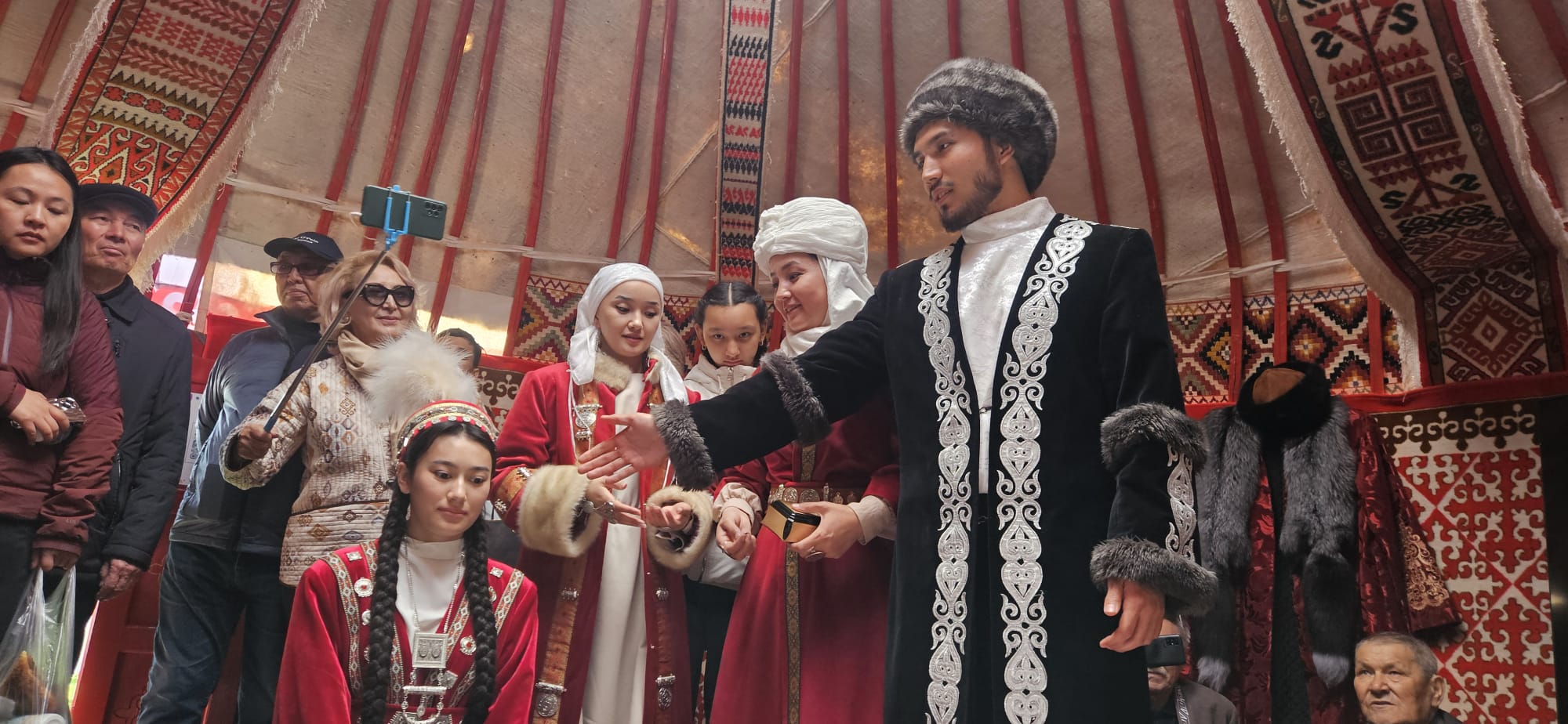
Inside the yurt, Ernur set the scene by pointing out the players, among them, the fathers of the future bride and groom, the future bride, her future mother-in-law, and a strumming dombra player. After the union was established, the mother-in-law bestowed her daughter-to-be with gifts of jewelry. As the dombra rhythm accelerated, the fathers-in-law embraced, and the two families exchanged gifts of — in this instance — fur-collared cloaks. The wedding, Ernur explained, would occur in March, the month of the traditional Central Asian New Year (Nauryz). Upward-facing palms aided declarations of goodwill and thankfulness, followed by more music, merriment, and horse-related appetizers. A sense of genuine formality and inclusive pomp was fully realized in under ten minutes.
The Mukanov Theater, named after Kazakh Soviet writer and poet Sabit Mukanov, is based in Petropavl, approximately 300 miles north of Astana near the border with Russia. Ernur, the aforementioned host and cast member, has been acting with the twenty-one-year-old Mukanov Theater for a year. Back in Petropavl, the company, which has a 200-seat theater building, performs traditional Kazakh plays, modern plays, and Shakespeare, which Ernur described as “so difficult for us!” 2024 marks the first year that they have performed at the WNG with their debut marriage proposal ceremony. Additionally, the theater company has enacted different nomadic traditions in other yurts around Kazakhstan. Ernur, who said he’d enjoyed his time in Astana, added that the Mukanov Theater was “proud that the World Nomad Games are here [in Kazakhstan].”
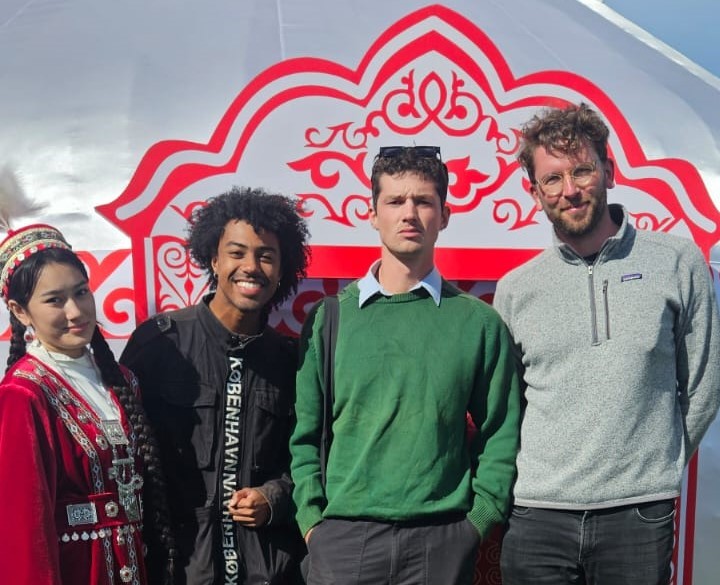
Left to right: Brandon, Albert and Jan at the World Nomad Games; image: TCA, K. Krombie
Three Western traveling companions, who met each other only recently on the backpacker trail of Central Asia, were ushered into the Mukanov Theater yurt. They each provided reviews of the immersive theater experience, and also, their individual opinions regarding the wider connotations of the performance, proportionate to Kazakhstan’s post-Soviet cultural heritage.
Brandon, an American from San Francisco, has been traveling the world for nine months and thought it would be “really funny” to come to the Stans for a couple of months. “I was in Turkey, and I was like, you know what, where’s the weirdest place I can think of to go to that’s not too far from where I am right now? Who’s ever been to Uzbekistan, right? Kazakhstan is my last stop after going to all five countries in the past two months. I was wandering around and when I got to Almaty two months ago, I heard about the World Nomad Games.”
After his extensive travels, Brandon contributed a seasoned perspective on the theater piece. “I think it’s actually very interesting. One thing I’ve learned… I went to Mongolia earlier in my travels, and obviously, with the nomadic culture, half of Mongolia still lives like this. So I was expecting this to be more true to form with how Kazakhstan actually is, but it turns out that Kazakhstan is completely industrialized. In fact, they don’t actually do this for real anymore, but it’s cool to see some of the preservation and some of the culture and history and obviously, you know, it’s good theater. The costumes are wonderful, and the vibes are good.”
Albert, from New Zealand, came to Astana specifically to visit the WNG after hearing about it from Brandon, whom he met while traveling in Uzbekistan a week ago. “ I just thought, you know, this is a now-or-never opportunity. It only happens every few years, so I just booked my ticket, and I flew out.” Having enjoyed the kokpar games and having missed the Tug of War that he wanted to see, Albert made the most of the theatrical yurt by accepting at least some of the ceremony’s edible offerings. “I’ve had quite a bit of horse meat already in Central Asia, which I actually kind of enjoyed, but the fermented horse milk was a bit sour for my palate. It was really cool seeing a bit of an insight into the whole marriage proposal and the traditions of Kazakhstan. I didn’t honestly know much about it.”
Jan, from Berlin, heard about the WNG at a friend’s wedding last week in Bishkek, Kyrgyzstan, via a guest activity recommendation on the wedding’s website. As regards the serendipitous shift from a real wedding to a marriage proposal performance, Jan commented, “I like it a lot. I’m really impressed by the costumes and how they’re trying to preserve this. Even though it might not be practiced as much anymore, I think it’s actually quite impressive and a nice way to define their identity.”
Due to enforced restrictions on herding routes under the Russian Empire, and sedentarization inflicted by the Soviet Union, an ancient nomadic culture was effectively quashed. Jan spoke of his visit to Astana’s National Museum of the Republic of Kazakhstan, regarding its attempts to restore a sense of national identity. “In the museum, it’s quite clearly depicted… the continuation of this [culture], and that they’re trying to get out of this Soviet Russian sphere of influence and find their own path.”
